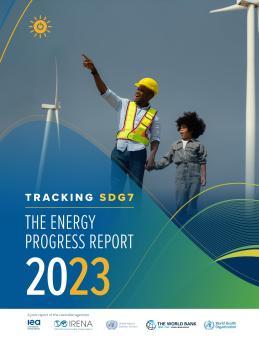Tracking SDG7: The Energy Progress Report
Accountability and transparency are essential for tracking progress towards achieving Sustainable Development Goal 7 (SDG7). Doing so clarifies where the world stands, how various actions are contributing to each of the targets, how much remains to be accomplished, and where more action is needed to ensure sustainable energy for all.
A multi-agency effort was launched to provide baseline energy data and regular updates towards the SDG7 goals of energy access, renewable energy and energy efficiency. The first SEforALL Global Tracking Framework (GTF) report was published in 2013, highlighting that a business-as-usual approach would not be sufficient to meet the 2030 objectives.
Published on an annual basis Tracking SDG7: The Energy Progress Report is a joint effort of the International Energy Agency (IEA), the International Renewable Energy Agency (IRENA), United Nations Statistics Division (UNSD), the World Bank, and the World Health Organization (WHO). SEforALL supports these agencies through the SDG 7 Technical Advisory Group.
The latest data shows that we are not on track to achieving Sustainable Development Goal 7 (SDG7) to ensure affordable, reliable, sustainable and modern energy for all by 2030.
Latest reports
Tracking SDG7: The Energy Progress Report 2023
This latest version of the report, the 2023 edition of Tracking SDG 7: The Energy Progress Report warns that current efforts are not enough to achieve the Sustainable Development Goal (SDG) 7 for energy by 2030.
The global energy crisis is expected to stimulate the deployment of renewables and improve energy efficiency with several government policies pointing to increasing investment.
However, the report also finds that mounting debt and rising energy prices are worsening the outlook for reaching universal access to clean cooking and electricity. Current projections estimate that 1.9 billion people will be without clean cooking and 660 million without electricity access in 2030 if we do not take further action and continue with current efforts.
See also:
Tracking SDG7: The Energy Progress Report 2022
The 2022 edition of Tracking SDG7: The Energy Progress Report assesses achievements in the global quest for universal access to adordable, reliable, sustainable, and modern energy by 2030. At today’s rate of progress, the world is still not on track to achieve the SDG7 goals by 2030. Advances have been impeded, particularly in the most vulnerable countries and those that were already lagging. This edition was prepared as the COVID-19 pandemic and its broad social and economic disruptions entered their third year. Some degree of economic recovery has taken place, but the pace of progress on the SDG7 target is expected to slow down because of new challenges from evolving COVID variants and an energy crisis provoked by the Russian invasion of Ukraine. The report considers the consequences of the evolving
pandemic, along with results from global modeling, to determine whether current policy ambitions can meet the SDG7 targets and to identify the additional actions that may be needed.
Tracking SDG7: The Energy Progress Report 2021
According to Tracking SDG7: The Energy Progress Report 2021, a greater share of the global population gained access to electricity than ever before, but the number of people without electricity in Sub-Saharan Africa actually increased during the last decade. Unless efforts are scaled up significantly in countries with the largest deficits the world will still fall short of ensuring universal access to affordable, reliable, sustainable, and modern energy by 2030. Globally, the number of people without access to electricity declined from 1.2 billion in 2010 to 759 million in 2019. At the same time, some 2.6 billion people remained without access to clean cooking in 2019, one third of the global population.
See also:
Tracking SDG7: The Energy Progress Report 2020
The 2020 edition of Tracking SDG7: The Energy Progress Report monitors and assesses attainments in the global quest for universal access to affordable, reliable, sustainable, and modern energy by 2030. The latest available data and select energy scenarios are set forth in this year’s report, which finds that although the world continues to advance toward SDG7, its efforts fall well short of the scale required to reach the goal by 2030.
See also:
Tracking SDG7: The Energy Progress Report 2019
The 2019 version of the Tracking SDG7: The Energy Progress Report provides the latest dashboard to gauge progress towards achieving SDG7. Now five years into the Sustainable Development Goals, the report shows that we are not on track to achieving SDG7 by 2030 and in many cases are falling further behind. Each year that goes by with little progress means the hill before us to achieve the goal by 2030 is getting steeper.
- Tracking SDG 7- Executive Summary (PDF | 18.51 MB)
- Tracking SDG7 - The Energy Progress Report Full Report (PDF | 49.59 MB)
Tracking SDG7: The Energy Progress Report 2018
Tracking SDG7: The Energy Progress Report provides the international community with a global dashboard to register progress on the targets of Sustainable Development Goal 7 (SDG7): ensuring universal energy access, doubling progress on energy efficiency and substantially increasing the share of renewable energy by 2030. It assesses the progress made by each country on these three targets and provides a snapshot of how far we are from achieving SDG7. The 2018 release is the fourth edition of this report, which is formerly known as the Global Tracking Framework (GTF).
Read our SEforALL article on interpreting the data for the 2018 report here.
Global Tracking Framework 2017
The third edition of the GTF provides an evidence-based look at progress at the regional, country, and international level toward ensuring universal access to modern energy services, doubling the share of renewable energy in the global energy mix, and doubling the global rate of improvement in energy efficiency. The report provides an overview of long-term trends since 1990 and focuses on progress achieved in the most recent period, 2012–14.
Global Tracking Framework 2015
The second edition of Sustainable Energy For All (SEforALL) Global Tracking Framework provides an update on how fast the world moved toward sustainable energy goals between 2010 and 2012. It tracks progress toward universal access to modern energy, doubling the rate of energy efficiency improvements and doubling the share of renewable energy consumption in the global energy mix. The report also assesses whether the world is moving fast enough to achieve those goals by 2030.
The second edition was launched at the Second Annual SEforALL Forum in New York in May 2015 and at the Vienna Energy Forum in June. It includes ground-breaking work to define a 2015 multi-tier definition of energy access and other innovative monitoring tools. The World Bank, ESMAP and the International Energy Agency (IEA) lead the work, supported by 20 other organizations. The Global Tracking Framework can also aid in measuring progress towards the proposed Sustainable Development Goal on energy. (SDG7)
Global Tracking Framework 2013
The first SEforALL Global Tracking Framework was released in 2013 and identified indicators that track progress toward the SEforALL objectives of universal access to modern energy, doubling the rate of energy efficiency improvements and doubling the share of renewable energy consumption in the global energy mix. Compiled by experts from 15 organizations and led by the World Bank and the International Energy Agency, the report drew on data from more than 180 countries, which account for more than 95 percent of the world's population. The report also documented the evolution of the indicators between 1990 and 2010 to provide a baseline for assessing progress in the next twenty years. It provides a comprehensive snapshot of the energy status of countries with respect to access, efficiency and renewable energy, as well as energy consumption.
Full 2013 Global Tracking Framework
High-impact countries for clean cooking access: Afghanistan, Bangladesh, China, Democratic Republic of Congo, Ethiopia, India, Indonesia, Kenya, Democratic Republic of Korea, Madagascar, Mozambique, Myanmar, Nepal, Nigeria, Pakistan, Philippines, Sudan, Tanzania, Uganda, and Viet Nam (SEforAll and CPI 2019).
The top 20 access-deficit countries are the 20 countries with the highest access-deficit population: Afghanistan, Bangladesh, China, Democratic People’s Republic of Korea, Democratic Republic of the Congo, Ethiopia, Ghana, India, Indonesia, Kenya, Madagascar, Mozambique, Myanmar, Nigeria, Pakistan, Philippines, Sudan, Uganda, United Republic of Tanzania, and Viet Nam (IEA, IRENA, UNSD, World Bank, WHO. 2020. Tracking SDG 7: The Energy Progress Report).
Related content
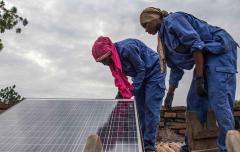
News
28 May 2020
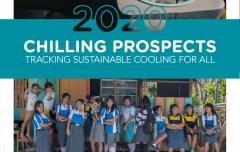
Research
16 Jul 2020
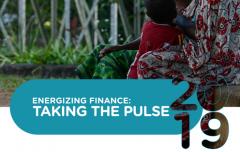
Research
22 Oct 2019
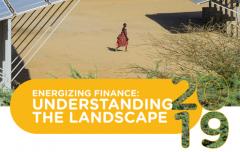
Research
22 Oct 2019

